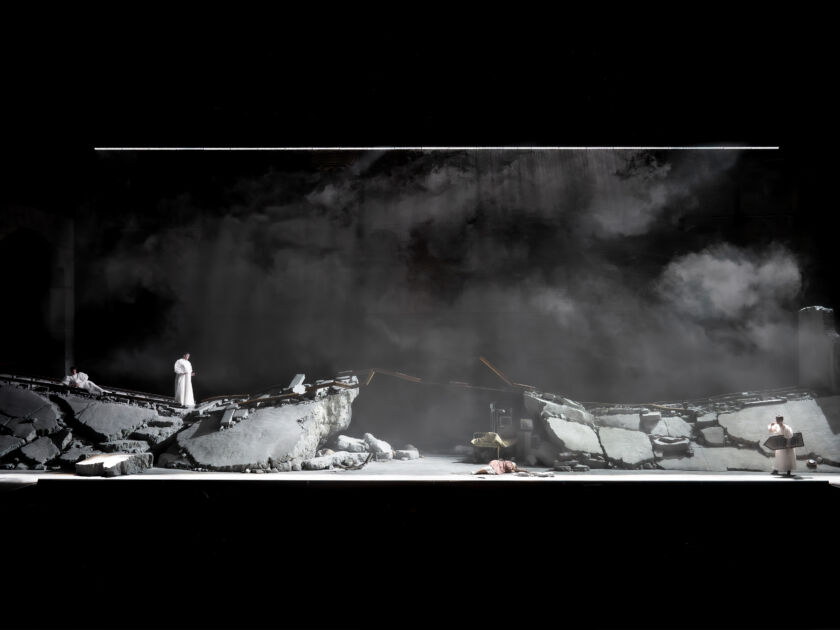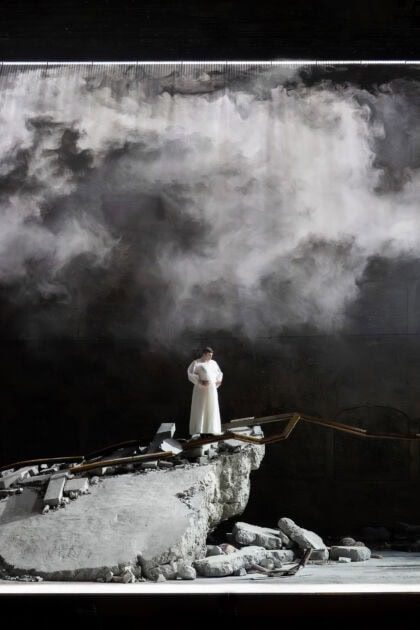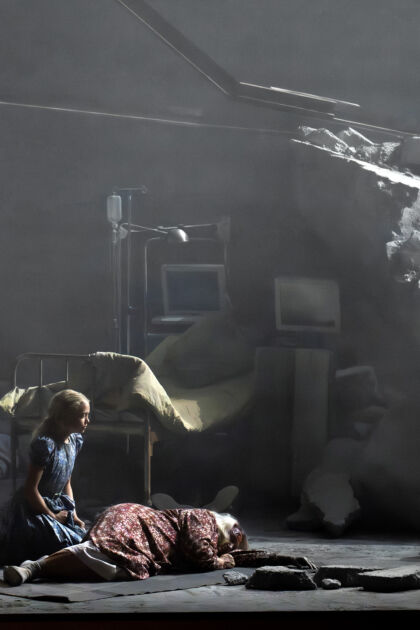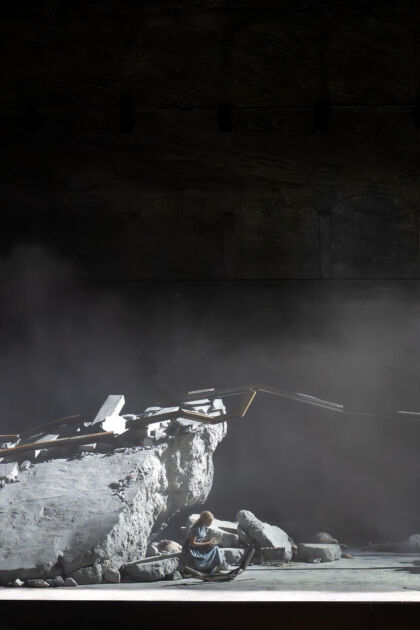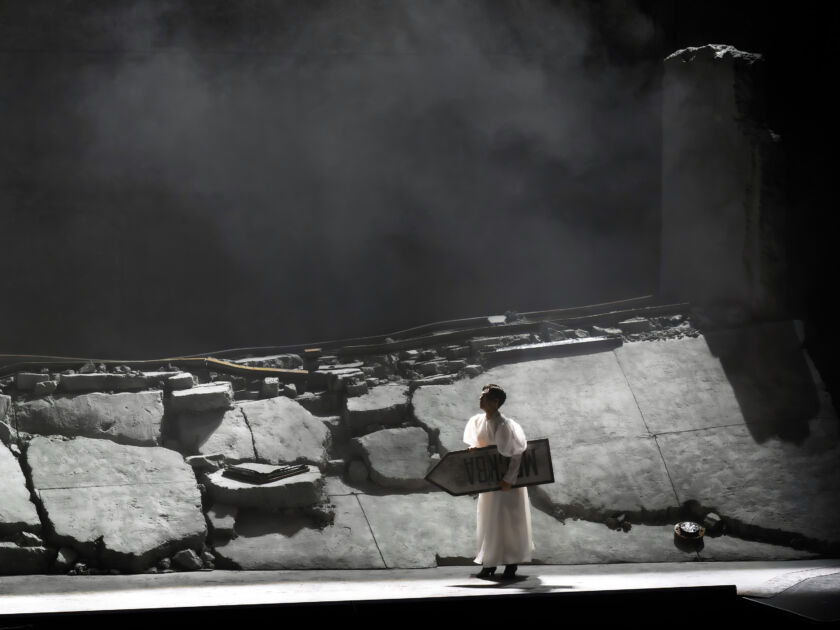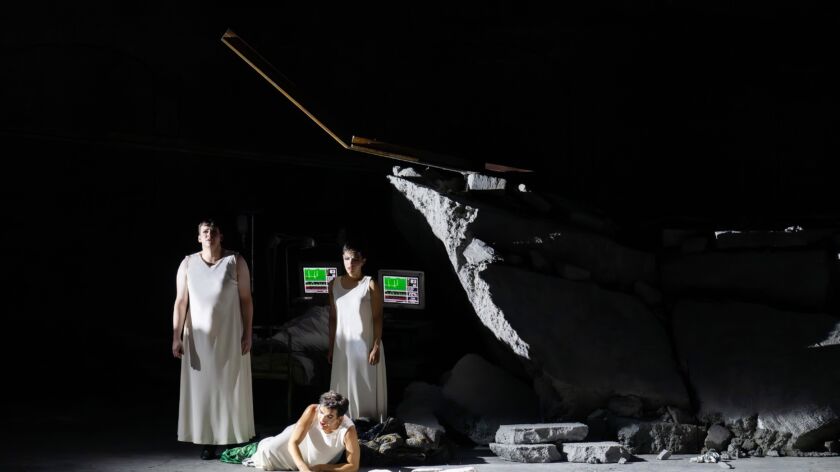‘… and life goes by and never comes back’
Irina can’t take any more, and bursts out: ‘Oh my God! Where has everything gone? I’ve forgotten everything.’ Then she adds abruptly: ‘We shall never go to Moscow.’ Neither the past with its memories nor the future with its hopes offer stability any longer. Time erodes and shrinks into the present — which is dominated by emptiness, dissatisfaction, pain and isolation. A condition that afflicts almost all the characters in Peter Eötvös’s opera Three Sisters (1998), based on Anton Chekhov’s play of the same name. The reactions are varied: repression or relativization, resignation or escape, and of course new dreams, hopes or even plans. Nevertheless, a seemingly unbridgeable gulf remains between today and the yearned-for tomorrow. Why do these individuals fail to get to Moscow, symbol of a different, better, more meaningful life? What inner or outer obstacles prevent them from doing so? That is a question we constantly find ourselves facing, which makes Chekhov’s and thus Eötvös’s characters seem very close to us. The question becomes all the more acute in the face of a sudden, raging fire — a catastrophe that demands concrete action, confronting us with destruction and suffering, with death and the sudden awareness that life could end faster than imagined.
In his first full-length opera Three Sisters, which would be followed by nine others, the Hungarian composer Peter Eötvös (1944—2024) abandons the linear plot of Chekhov’s play. Out of a radical rearrangement of scenes and lines of text he created three ‘sequences’, each of which focuses on a different protagonist and depicts the events surrounding the Prozorov siblings and the soldiers stationed in their town from the specific perspectives of these three figures: as the subjective memories of Irina and Masha and their brother Andrey. (Olga, the eldest of the three sisters, is not given her own sequence.) While Chekhov develops relationships, conflicts and inner processes subliminally over the course of the whole play, Eötvös presents them in condensed form, as if under a magnifying glass. In each sequence he explores a triangular constellation. Thus, Irina receives successive confessions of love from the effusive Baron Tuzenbach and the staff captain Solyony, who exerts a dark, unsettling fascination on her. Andrey has abandoned his great plans for his life and with them his self-respect, and is caught between his sisters and his wife Natasha, who tyrannizes everyone around her and is having an affair with her husband’s superior. Masha, frustrated in her marriage to the pedantic Kulygin, succumbs to her passion for the battery commander Vershinin, who is likewise married.
Chekhov’s characters do not express everything they feel and think in words — much takes place in the pauses that are so typical of the author, and which are marked in the text. Eötvös’s music also interprets what is left unsaid, doing admirable justice to Chekhov’s psychological complexity. It captivates from the prologue’s very first bars, played by an accordion. The instrumental soundscape of the opera is shaped by two ensembles, with a 50-strong offstage orchestra complementing the 18 musicians in the pit. Eötvös cast the roles of the three sisters and Natasha as countertenors. This unusual decision arose from a desire to achieve emotional authenticity beyond the boundaries of gender through an element of abstraction.
Since its world premiere in Lyon, Three Sisters has established itself on the international stage as one of the most fascinating works of contemporary musical theatre. Evgeny Titov has been engaged to direct this new production for Salzburg: after triumphs in straight theatre, he has been attracting attention since 2021 with opera stagings that are sensitive and perceptive, moving and intense in equal measure. Following the award-winning production of Bohuslav Martinů’s The Greek Passion, Maxime Pascal conducts his second fully staged opera at the Salzburg Festival.
Christian Arseni
Translation: Sophie Kidd
Production Photos
